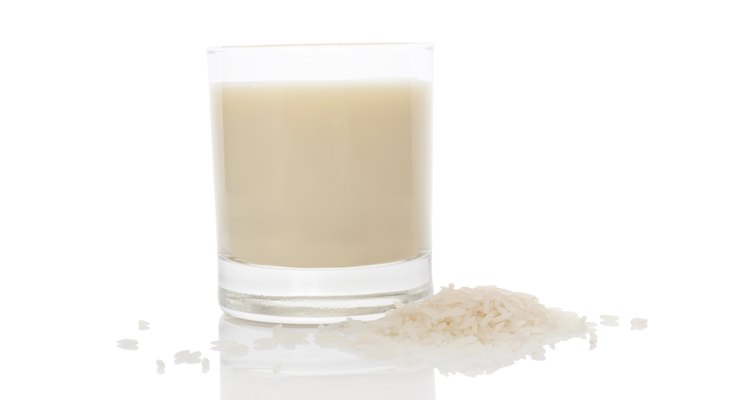
eskymaks/iStock/Getty Images
Rice milk is a type of grain milk processed from rice. It is often made from brown rice and is unsweetened, though it may be sweetened through an enzymatic process or by adding sugarcane syrup. Rice milk is a nutritious beverage option for those who cannot tolerate dairy or do not wish to consume dairy products, vegans, and those with certain allergies. It is usually an off-white color.
Types
Rice milk may be packaged as a chilled, ready-to-drink beverage that is available in the dairy section of the supermarket or in a container that is kept unchilled and is shelf-stable due to aseptic packaging. The shelf-stable version may be kept in your pantry for up to a year. Once opened, rice milk should be consumed within two weeks.
Refrigerated
One cup of plain rice milk, such as Rice Dream, provides 120 calories, 2.5g fat, 0g saturated fat, 1g protein, 23g carbohydrates, 10g sugars, 0g dietary fiber, 0mg cholesterol and 100mg sodium. The fat comes from organic expeller-pressed safflower and/or canola oil to add thickness to the product. Vanilla rice milk has the same amount of protein and slightly more calories, carbohydrates and sugar than the plain version, as well as slightly less sodium. One cup of vanilla rice milk provides 130 calories, 26g carbohydrates, 12g sugars and 80mg sodium.
Shelf-Stable
Shelf-stable rice milk typically comes in many more flavors than the chilled versions, such as chocolate, carob, vanilla, vanilla-cinnamon, vanilla-hazelnut, chocolate chai and other varieties. As these rice milks are sweetened with extra ingredients, they are often higher in calories and carbohydrates. For example, 1 cup of chocolate rice milk provides 160 calories, 3g fat, 0g saturated fat, 2g protein, 34g carbohydrates, 28g sugars, less than 1g dietary fiber and 90mg sodium.
Minerals
Both the refrigerated and shelf-stable rice milks are enriched with vitamins and minerals. One cup of either variety of rice milk meets 30 percent of the recommended daily value (DV) for calcium and 15 percent of the DV for phosphorus. Both minerals are necessary for developing and maintaining strong bones and teeth. In addition, calcium helps maintain normal blood pressure, supports muscle function and helps maintain cell membranes, while phosphorus is a component of all cell membranes and is necessary for activating the B vitamins.
Vitamins
One cup of rice milk meets 10 percent of the DV for vitamin A and 25 percent of the DV for both vitamins D and B12. Vitamin A is necessary for immune-system function and healthy eyesight, while vitamin D is also important for immune-system function, strong bones and teeth, and it may help reduce the risk of developing certain types of cancer. Vitamin B12, usually present only in animal foods, is a commonly deficient vitamin in the diets of vegans. This important nutrient helps support the nervous system and develop red blood cells.
Related Articles
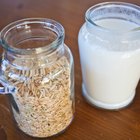
How to Make Your Own Rice Milk
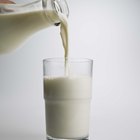
Whole Milk Vs. Lactaid Milk

Milk Protein for Skin Care

Can You Cook Rice in Milk Instead of ...
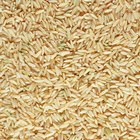
How Long After a Sell-By Date Can You ...
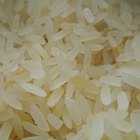
How Long Can I Store Uncooked Jasmine ...

How to Make Sweet Brown Rice
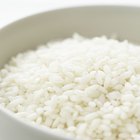
Proper Handling and Storage of Rice

How to Cook Golden Rose Rice
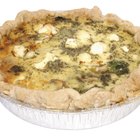
Dairy Substitutes for Quiche

How to Make Creme With Alpha Hydroxy ...
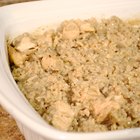
Baked Chicken & Rice With Mushroom Soup
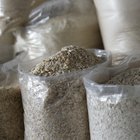
How to Cook Rice Flakes
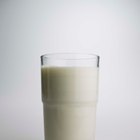
How to Cook With Lactaid
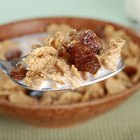
Calories in a Bowl of Raisin Bran Cereal
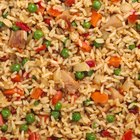
How to Cook Arroz Chaufa
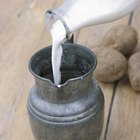
How to Keep Scalloped Potatoes From ...

How to Make Chinese Crispy Rice Cakes
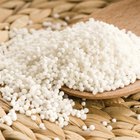
What Is the Nutritional Value of ...

How to Successfully Make Ice Cream From ...
References
Writer Bio
Michele Turcotte is a registered, licensed dietitian, and a certified personal trainer with the National Academy of Sports Medicine. She has more than 12 years of experience in clinical and corporate settings, and has extensive experience in one-on-one diet counseling and meal planning. She has written freelance food and nutrition articles for Trouve Publishing Inc. since 2004.
Photo Credits
eskymaks/iStock/Getty Images